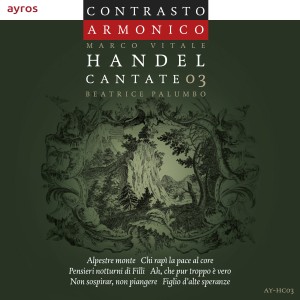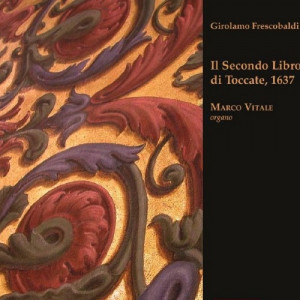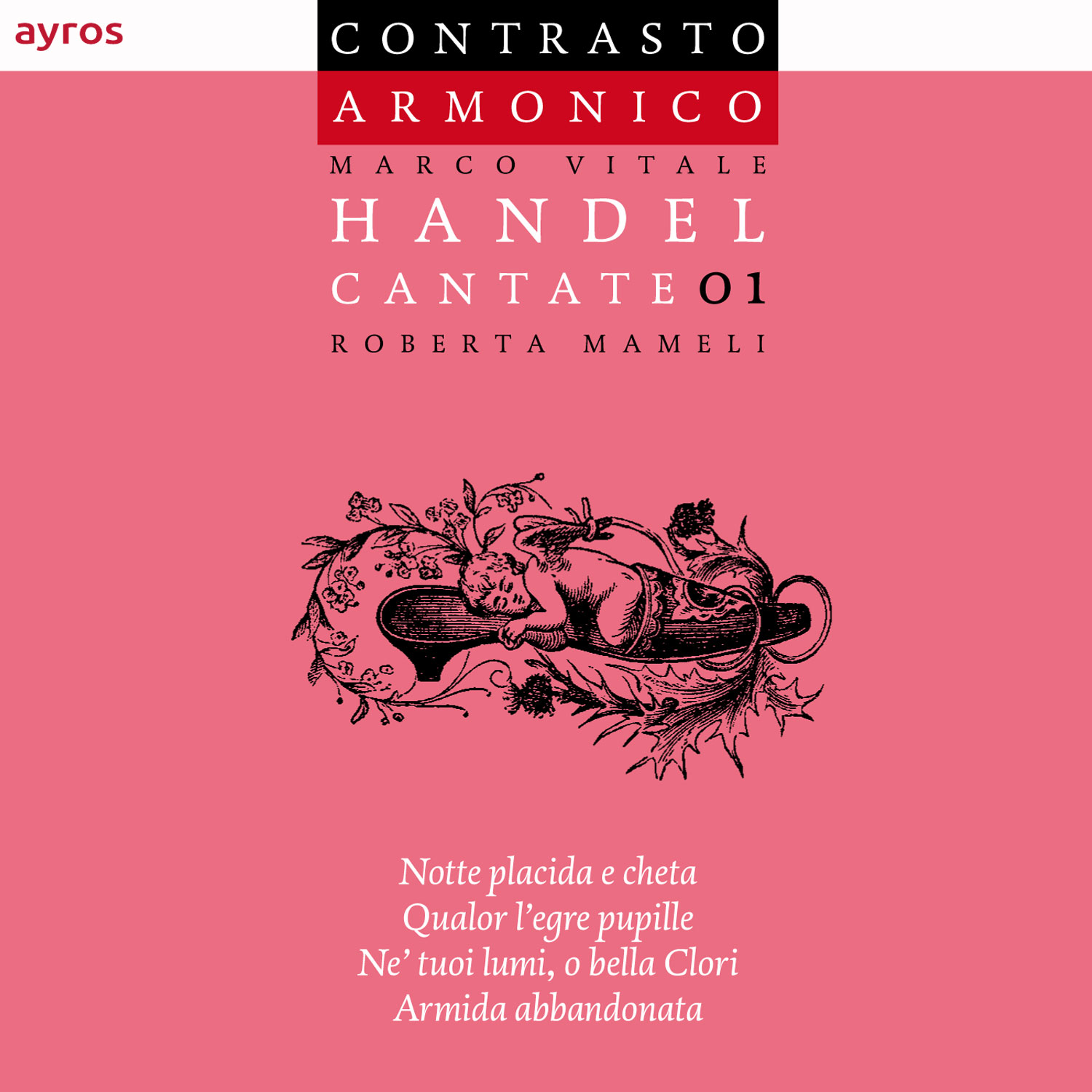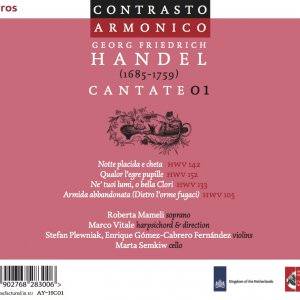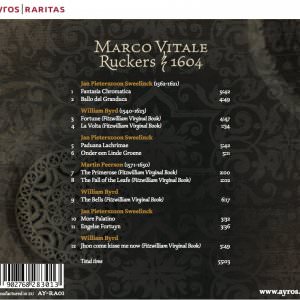Claudio Monteverdi
IL COMBATTIMENTO DI TANCREDI E CLORINDA
and other vocal and instrumental works by:
Monteverdi, Frescobaldi, Gabrieli and Cima.
Marcel Beekman • Contrasto Armonico • Marco Vitale
live recording
Additional information
| Soloist(s) | |
|---|---|
| Ensemble | |
| Director | |
| Composer | Claudio Monteverdi, Giovanni Gabrieli, Giovanni Paolo Cima, Girolamo Frescobaldi, Marco Uccellini |
EAN: AY-L01 - Need Help? Contact Us Leave Feedback
Categories: ayros live, Contrasto Armonico, Marcel Beekman, Marco Vitale
Brand: Contrasto Armonico, Marcel Beekman, Marco Vitale
Contact Us
Leave Feedback
Release sheet
Il Combattimento di Tancredi e Clorinda (SV 153) is a Madrigale Rappresentativo by Claudio Monteverdi. The text is entirely taken from Torquato Tasso’s epic poem La Gerusalemme Liberata (“Jerusalem Delivered”, Canto XII, 52-62, 64-68), a Romance set against the backdrop of the First Crusade. Il Combattimento was published in 1638, together with several other pieces in his eighth book of madrigals (Madrigali Guerrieri et Amorosi), but was first performed twelve years before, as Monteverdi himself wrote in his introduction.
The story tells of the Christian knight Tancredi, on a crusade to the Holy Land, who fights a warrior- maiden Muslim, disguised as man, whose name is Clorinda. During a night battle in which she sets the Christian siege tower on fire, she is killed by Tancredi. He loved her, but he didn’t know she was the beloved Clorinda until, after killing her, he opens her helmet to give her the baptism.
Monteverdi wrote a brief introduction on the piece, where he gives precious elements for the performance practice and in general about the stile recitativo. He tells that the voice has to be firm, with good pronunciation and no ornaments except for specific places he indicates.
The Combattimento has also the primate of having the first written pizzicato of the history of the music (qui si strappano le corde con due dita – here pluck the strings with two fingers), and contains many other instrumental indications like bow vibrato and written-out dynamics.
Contrasto Armonico and Marcel Beekman perform a musical journey focused on the tenor voice, which was at the time of Monteverdi the most important register. We begin the concert with Tempro la Cetra (Temper the lyre – from the 7th book of Madrigals of Monteverdi) where the tenor starts a song to Mars to sing about war; the lyre refuses to give tribute to the war and starts by itself to play music about love, to please the goddess Cytherea.
The second vocal piece is the virtuosistic Confitebor a voce sola, with the accompaniment of two violins which alternate the voice with an open and bright ritornello. The piece ends with an echo-duet between solo violin and tenor, a successful musical solution already employed by Monteverdi in his Vespro per la Beata Vergine (1610).
The instrumental music comments the virtuosity of Marcel Beekman, completing the program with works by Girolamo Frescobaldi, Giovanni Paolo Cima and Giovanni Gabrieli.
Contrasto Armonico follows the period’s practice of carefully choosing the instruments by the register on which they perform. Monteverdi himself asked for quattro viole da brazzo: soprano, alto, tenore e basso. We perform this program on a violin (the viola da brazzo soprano), alto viola, tenor viola and bass violin. The sound is very different from a classic string quartet, because every instrument plays on its best register (on string instruments, the two upper strings).
As Monteverdi himself writes, the Combattimento was not heard before and never heard again after, and it moved the people so much that they almost cried. We experienced this during our performances with this program, at the end of the concert people were deeply moved and cried.
ayros live
AYROS LIVE is a collection of recordings featuring special live concerts. The CDs are only possible to be purchased from ayros website and are in a limited edition. The present recording was made in Utrecht on the 19th of November 2014.
TRACKLIST:
1. Tempro la Cetra (Monteverdi)
2. Toccata per Spinettina e Violino (Frescobaldi)
3. Confitebor a voce sola, con viole (Monteverdi)
4. Canzon prima sopra il Rugier (Frescobaldi)
5. Sonata à 4 (Cima)
6. Canzon Prima “La Spiritata” à 4 (G. Gabrieli)
7. Combattimento di Tancredi e Clorinda (Monteverdi)
8. Si dolce è ‘l tormento (Monteverdi)
9. Aria Quinta sopra la Bergamasca (Uccellini)
10. Vi ricordo o boschi ombrosi [encore]
Total time 58:09



